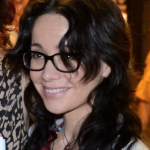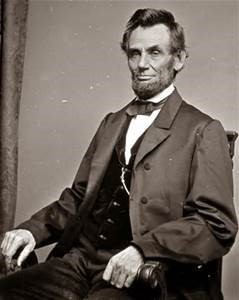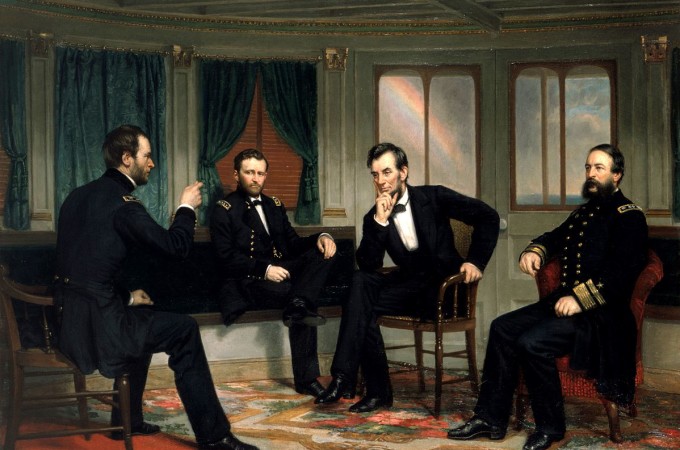As the 2016 presidential elections are finally underway we are seeing a house divided.
For months, the news has been focusing on the state of Iowa, where the 2016 caucuses (the first voting) have just finished.
In a recent article in the Los Angeles Times, Chris Megerian and Mark Z. Barabak wrote of a house divided in the seemingly unbridgeable division between the citizens of Iowa. “Republicans see an America where the government is too big at home and too feeble abroad. Democrats see an America where the economy is out of whack.” They continue:
But the division goes far beyond a profound disagreement on issues. While partisan tensions are nothing new, they have deepened and intensified … the parties have splintered along the lines of age, race and culture. The result is a separation of America into mutually estranged and suspicious tribes.
Today, as conversations at opposite poles of Iowa show, voters on each side often get their news from different sources, worry about different problems and view political adversaries with mistrust and even contempt. One voter’s vision for America is nothing less than another’s nightmare; it’s common to hear candidates of the opposing party described as “concerning” or “scary” or “crazy.”
The writers point out that Iowa’s house divided is a microcosm of the US house divided. The state “reflects the vast political chasm here and across the country.”
People living in the same neighborhood may see the world so differently. Each side sees the other’s vision as the end of the country. Neighbors living in the same block or working in the same building hardly understand each other at the level of political, cultural vision. They are ships passing in the night.

Comedian and political activist Janeane Garofalo illustrates the divide:
When I see the American flag, I go, “Oh my God, you’re insulting me.” That you can have a gay parade on Christopher Street in New York, with naked men and women on a float cheering, “We’re here, we’re queer!” — that’s what makes my heart swell. Not the flag, but a gay naked man or woman burning the flag. I get choked up with pride.
The US is a house divided by issues like global climate change, immigration, and the charge of racism.
The ground is staked off and sides are chosen between:
- abortion vs. pro-life,
- black lives matter vs. all lives matter,
- same-sex “marriage” vs. natural marriage,
- second amendment rights vs. gun violence,
- sacredness of life vs. death with dignity,
- moral absolutes vs. moral relativism,
- freedom of religion vs. freedom from religion,
 Today two nations occupy one North American continent. Rabbi Daniel Lapin has described it this way: “We are no longer one nation under God. We are two separate nations with two distinct and incompatible moral visions.”
Today two nations occupy one North American continent. Rabbi Daniel Lapin has described it this way: “We are no longer one nation under God. We are two separate nations with two distinct and incompatible moral visions.”
Meanwhile, political and cultural commentator and writer Patrick Buchanan speaks starkly: “We no longer inhabit the same moral universe. We are no longer a moral community. We are two countries. One part of America has seceded, and the other has no interest in re-establishing the Union.”
However, this is not a battle of Republican vs. Democrat, black vs. white, women vs. men, urban vs. rural, old vs. young, Christian vs. Jew, or Protestant vs. Catholic. It is a battle of ideas and ideals, sacred belief systems, worldview. The issues are not the issue.
Megerian and Barabak’s analysis is good as far as it goes. But they did not go far enough. The larger ISSUE behind these issues are differing world and life views.
The ISSUE is two different moral visions based on different cultural stories, different “theologies” – Theism vs. A-theism. Do we have a nation under God or a nation where the state is sovereign?
A house divided against itself cannot stand
Why are Iowans and US citizens so deeply divided? It is nothing less than the difference between the Judeo-Christian worldview and the atheistic-humanistic worldview. Because ideas have consequences, these two radically different worldviews lead, logically, to very different visions for the nation and ultimately very different government policies.
 As President Abraham Lincoln stated a century and a half ago, “A house divided against itself cannot stand.”
As President Abraham Lincoln stated a century and a half ago, “A house divided against itself cannot stand.”
What is the moral vision shaping your citizenship? Where has that vision come from?
Christians are to be good citizens. As such, it is vital to consciously reason from the Judeo-Christian worldview to one’s political philosophy and policies.
- Darrow Miller







2 Comments
Clark Dahl
February 4, 2016 - 6:58 pmThis article is one of the best I have read in a long time and it is one that completely dovetails with my view of the new “uncivil war” in America today. This war will have far greater consequences than the Civil War of 1860. This war will determine the survival of our country and, frankly, what the entire world will look like. The issue is very much in doubt.
admin
February 5, 2016 - 4:36 amThanks Clark for your comment. Yes, we are in deep trouble. The one hope is the promise in 2 Chronicles 7:14: “if my people, who are called by my name, will humble themselves and pray and seek my face and turn from their wicked ways, then I will hear from heaven, and I will forgive their sin and will heal their land.”
Darrow